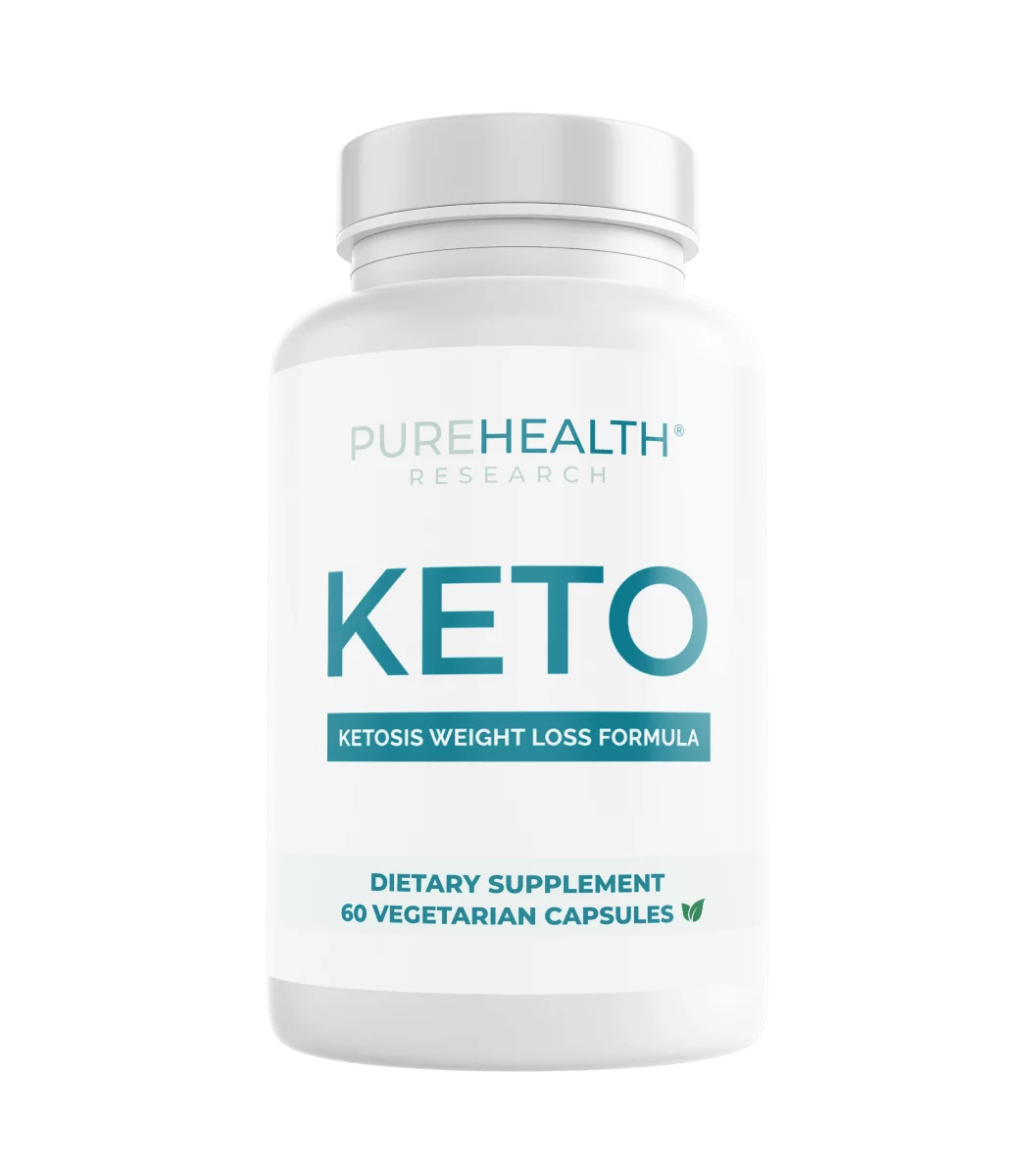Is Tomato Sauce Keto Friendly?
Is tomato sauce keto-friendly? Discover how to enjoy tomato sauce in your ketogenic diet without compromising your low-carb goals.


Is tomato sauce keto-friendly? This question tends to be prevalent among keto enthusiasts. Tomato sauce is common in many households and can have a surprising role in the ketogenic diet. Keto is a low-carb, high-fat eating plan popular among individuals who want to lose weight and have better metabolic health.
This diet helps your body get into a state of ketosis. In this state, the body usually burns fat instead of carbohydrates for energy. While the diet primarily focuses on reducing carb intake, the question of whether tomato sauce fits into this regimen remains. After all, raw tomato contains some carbs (4%) in it.
If you are looking for answers to the question, “Is tomato sauce keto-friendly?” you are on the right website. Here, we will dive into the world of keto-friendly tomato sauce, its history, benefits, tips on how to prepare homemade keto tomato sauce, and some delicious foods for you to try.
Keto Origin
Before we delve into the delightful world of keto-friendly tomato sauce, let’s take a moment to understand the keto diet itself. The keto diet plan has gained immense popularity in recent years. The diet plan aims to transition the body into a ketosis state. During this state, your body burns fat for energy rather than carbohydrates.
The keto diet has been around for a long time, from around the 1920s. During that time, individuals who had epilepsy were the most frequent to use it. After the emergence of anti-convulsive therapies, patients with this condition started to abandon this diet. Of course, epilepsy patients aren’t the only ones who can benefit when their bodies are in a ketosis state. In fact, evidence shows that this unique metabolic state offers a plethora of benefits, such as:
- Improved weight loss
- Better appetite control
- Boosted visceral adiposity
- Healthier heart
Based on data from the USDA, a medium tomato consists of at least 3-4 grams of carbs. Also, it contains 1 gram of fiber per 100 grams. These characteristics make tomato sauce a low-carb food, thus perfect for anyone following the keto diet. Furthermore, their low glycemic index and fiber ensure they fit various individuals. Some may think that the carbs in tomato paste are actually higher, but these numbers speak for themselves.
Usually, fiber plays a major role in helping slow down digestion, meaning you won’t feel hungry faster. You will feel full for an extended period, thus preventing sugar spikes as well as crashes. Their low glycemic index also ensures their sugar is released slowly into your bloodstream, thus avoiding sudden increases in sugar levels. Furthermore, tomatoes are also rich in essential nutrients like:
- Vitamin C for better immunity
- Vitamin A for eye health
- Minerals such as potassium that help the nervous system
All this means tomato sauce can be the ideal choice for those who wish to enjoy the benefits of a keto lifestyle. And on top of that, you can opt to use it with various appetizing keto Thai food recipes!
Is Tomato Sauce Keto Friendly? Myths and Facts

Is tomato sauce keto-friendly? The answer to this question depends on the sauce you are using. For example, most tomato sauces you buy in stores contain added sugars, which aren’t keto-friendly. But before we continue, let’s dispel the myths and unveil the nutritional facts to set the record straight about tomato sauce.
Are tomatoes high in carbs? Not really. Tomatoes do contain carbs, but the amount is relatively low, which makes them a suitable choice for people following a keto lifestyle. Tomatoes tend to have 3-4 grams of carbs per 100 grams. Therefore, they can easily fit within the required daily carb limit.
“Tomato sauce with sugar is keto-friendly.” This statement isn’t true. Most store-bought tomato sauces and pastes contain added sugars, which are not good. However, you can create your own homemade keto tomato sauce if you want a healthy alternative. Making the sauce yourself enables you to control the ingredients and ensure it remains keto-compliant.
So, what tomato sauce is keto-friendly? Let’s look at these key points:
- Tomato sauce is keto-friendly as long as it doesn’t contain added sugar.
- Additionally, the ingredients used to prepare it don’t add more carbs to the end product.
- It is keto-friendly if only healthy fats like avocado and olive oil are used.
Homemade Keto Tomato Sauce Recipe
So, you might be wondering, is homemade tomato sauce keto-friendly? Yes. With the right ingredients, it’s possible to make keto tomato paste. Making your own sauce is an excellent idea, as it gives you full control over the ingredients. On the other hand, buying low-carb tomato sauce on the market can be quite pricey, so this approach also helps you save money. Furthermore, making quality keto tomato recipes is not hard, and you can customize the spices to how you like them.
But before we dive into the keto tomato sauce recipe, let’s take a look at some tips that will help you make a quality sauce. These tips are:
- Pick quality fresh tomatoes, not canned. Using fresh tomatoes will make your sauce less processed and have a richer flavor.
- Go for ripe tomatoes to get the best flavor. Ensure the tomatoes are bright red or orange with a strong skin and no spots.
- Choose your flavor. What kind of flavor do you want? Is it spicy or more mild?
- Don’t forget to include a flavor base. Garlic, onions, and various herbs can make your sauce taste better.
- After mixing everything, simmer your tomato sauce so that all flavors can mix well. Give this step at least 30-60 minutes. In this case, simmering means cooking on low heat and stirring once in a while.
- Include some fat. Keto-friendly fats such as avocado and olive oil can offer a smooth texture and amazing flavor to your source.
- Don’t forget to use keto-friendly sweeteners like monk fruit or erythritol to help balance the acidity of tomatoes.
- Lastly, use airtight containers to store your sauce. This way, it will stay fresh for an extended period.
Ingredients
Here are some ingredients for a low-carb tomato sauce recipe. In this case, we are going to use fresh tomatoes.
- At least 4-6 plum tomatoes
- 1 tablespoon olive oil
- 2 cloves of garlic
- ½ tablespoon dried basil
- ¼ tablespoon salt
- ¼ dried oregano
- Fresh parsley sprig (optional)
- Fresh basil sprig (optional)
Instructions
- Cut your tomatoes into half crosswise and remove seeds and jelly.
- Put your tomatoes in a food processor or blender and mix them.
- Cut your garlic and add it to a skillet or frying pan with a tablespoon of oil.
- Bring the frying pan to medium heat and cook the garlic. Stir it once in a while until it softens and your oil is flavored.
- Now add your tomatoes, dried oregano, basil and salt.
- Simmer and stir your mixture for at least 30 minutes. Doing this will ensure the extra water in your sauce evaporates.
- Add some fresh herbs and continue cooking until wilted.
- Taste and adjust the seasoning to how you like it.
- Remove your sauce, let it cool, and pack it in an airtight container.
5 Ways to Eat Keto Tomato Sauce

There are various ways you can eat your homemade tomato sauce. They include:
1. Easy Keto Marinara Sauce
Want to start with the basics? Easy keto marinara sauce is the perfect place to begin. You can use this sauce in various ways. For example, preparing zucchini noodles, pizza, and spaghetti squash when craving a quick Italian fix.
2. Roasted Tomato Soup
A warm bowl of roasted tomato soup can be incredibly comforting when the weather turns chilly. This keto-friendly version combines the rich flavors of roasted tomatoes with the creamy goodness of heavy cream or coconut milk. Taking roasted tomato soup is a good way to remain warm while staying within your carb limits.
3. Mediterranean Cod Skillet
Consider whipping up a Mediterranean cod skillet with tomato sauce for a Mediterranean-inspired keto meal. Sauté cod filets with a mix of olives, capers, garlic, and tomato sauce. This combination will result in a tasty and satisfying meal full of flavors. Do you love seafood? Then this is a great option.
4. Creamy Tomato Sauce
Are you in the mood for a creamy and indulgent tomato sauce? Look no further! Mix your homemade keto tomato sauce with heavy cream, some cheese, and butter to create a rich, creamy sauce. You can then serve it with grilled chicken or use it to coat your low-carb pasta.
5. Pizza Sauce
Missing your favorite pizza on the keto diet? With homemade keto pizza sauce, you can enjoy a guilt-free pizza night. Spread this savory sauce over a keto-friendly pizza crust, add your preferred low-carb toppings, and bake to perfection. It’s a delightful way to savor the taste of pizza without the excess carbs.
Try Out the PureHealth Research Keto Formula
The journey to achieving and maintaining a successful keto diet can sometimes be challenging. Of course, the keto diet provides amazing benefits. However, it needs strict adherence to low-carb, high-fat principles, which is not easy. But don’t worry! At PureHealth Research, we’ve got your back. With the help of experts such as Dr. Holly Lucille, we have created the Keto Formula, a valuable ally on your keto journey.
Therefore, taking these supplementary pills can help you achieve and maintain a ketosis state, making them a top choice among the best supplements for weight loss. Some benefits of our product include:
- Enhanced Ketosis Support: The primary aim of the keto diet plan is to reach and maintain the ketosis state. Our formula contains ingredients that can help boost and maintain this state, enabling you to maximize fat loss and overall weight management.
- Increased Energy Levels: Technically, transitioning to a ketosis state might result in low energy levels. That’s why taking our Keto Formula is important. It contains ingredients that can help improve your energy level during the adaptation phase, helping you stay active and alert.
- Appetite Control: One of the challenges of any diet is managing cravings and controlling your appetite. But you don’t have to worry about this. Our formula contains quality ingredients that can help suppress your appetite, aiding you to easily stick to your keto regimen.
- Improved Mental Clarity: Many keto enthusiasts report enhanced mental clarity and focus. Taking our formula can support this by providing your brain with the energy it needs to function optimally, thus improving mental sharpness throughout the day.
- Nutrient Replenishment: Maintaining a balanced intake of essential nutrients can be tricky on a keto diet. Keto Formula can help fill the nutritional gap by ensuring you get the essential minerals and vitamins, thus promoting your overall health and well-being.
Final Thoughts
To answer your question, is tomato sauce keto-friendly? Yes, it is. Here, we’ve explored the history of the ketogenic diet, debunking myths and providing a keto-friendly homemade sauce recipe. We’ve also highlighted five delicious ways to enjoy tomato sauce and introduced the Keto Formula from PureHealth Research as a supportive tool for your health journey.
So, whether you’re dipping, sautéing, or simmering, tomato sauce can be your perfect keto companion. Don’t forget to include the PureHealth Research Keto Formula to unlock the full potential of your ketogenic journey.
Of course, you can have tomato sauce on a keto diet. When chosen and prepared mindfully, tomato sauce can be a delicious and versatile addition to your ketogenic meals. However, store-bought tomato sauces often contain added sugars, which can be a concern for keto followers.
In a 100-gram serving of tomato sauce, you’ll find roughly 5.69 grams of net carbs. However, the number of carbohydrates in tomato sauce can vary. It’s essential to check the nutrition label or make your own tomato sauce to control the carb content for your specific dietary needs.
Keto-friendly tomato sauce typically exists in homemade or store-bought varieties that are specifically labeled as “sugar-free” or “low-carb.” These options contain minimal added sugars or are particularly low on carbs. Making homemade tomato sauce is often the best option, as it gives you the freedom to choose the ingredients and keep it sugar-free.
Sign up for our Healthy Living newsletter!
Advertisement. This site offers health, wellness, fitness and nutritional information and is designed for educational purposes only. You should not rely on this information as a substitute for, nor does it replace, professional medical advice, diagnosis, or treatment. If you have any concerns or questions about your health, you should always consult with a physician or other health-care professional. Do not disregard, avoid or delay obtaining medical or health related advice from your health-care professional because of something you may have read on this site. The use of any information provided on this site is solely at your own risk.











